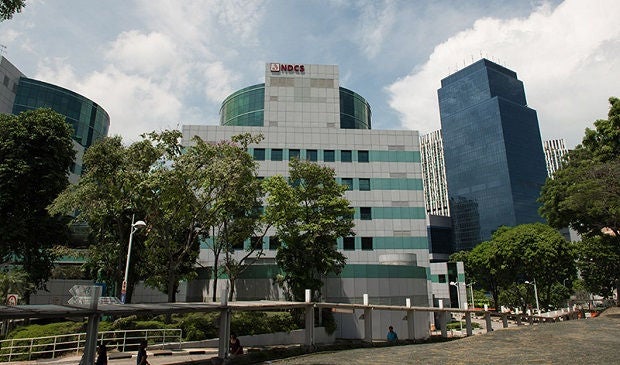
DOING IT RIGHT
The Care Partnership Programme (CaPP), run by the National Dental Centre Singapore (NDCS), is a collaborative partnership between NDCS and her network of general dental practitioners (GDPs). By forging community partnerships and creating a strong primary care network, the CaPP enables the co-management of cases and a smoother transition of patients with stable dental conditions, from NDCS to general dental clinics for follow-up care.
The CaPP has been gathering momentum since it first began in 2017, and is aligned with MOH's vision of "Beyond Hospital to Community". It began with right-siting patients who require simple gum treatment. This has expanded to include other disciplines such as single crowns, dentures and special care dentistry in 2018 to 2019. In 2020, simple root canal treatment will make the list.
The Partnership
Primary care plays a pivotal role in Singapore's healthcare system. Primary healthcare professionals serve on the frontlines of healthcare. They ensure patients get the right care from the most suitable care providers in the right settings. They also play a vital role in anchoring patients in the community after discharge from hospitals and SOCs.
NDCS envisages a three-way partnership between NDCS, the polyclinics and community dentists. Dental care can be tiered into different levels of complexity. The more complicated cases can be managed by our NDCS specialists, while basic to intermediate levels can be managed by care partners.
So far, 36 dentists in the community have been engaged, but this number will rise as more patients are transferred. The dentists have gone through a series of workshops and lectures to upgrade their skills and align themselves with NDCS in the joint care of patients.
The workshops and lectures are aimed at aligning the way patients are managed by NDCS's dental partners. NDCS is working out a framework to evaluate the care delivered, and assess and monitor patient outcomes.
Models of Dental Care
The patients under CaPP are either under the shared care model or have their care transited from NDCS to our care partners. The shared care model refers to those patients who continue to receive dental care from both NDCS and our care partners. These patients are those with medical conditions and other risk factors that could potentially predispose them to having periodontal disease. Patients with stable dental conditions and no such risk factors will have their entire care transited to our care partners.
"These patients enjoy benefits such as treatment fees at these participating GDP clinics capped at a maximum limit, and convenience of a GDP nearer their homes," said Dr Wu Siwen, Associate Consultant, NDCS, who helms the CaPP as Head of Community Partnerships. "When patients receive long-term chronic dental care from a GDP and realise the benefits of receiving dedicated care by a named dentist with convenience of location and flexibility in making appointments, the family members will often choose to seek dental care from the same GDP," Dr Wu added.
How it works
Right-siting officers (RSOs) at the Care Transition Office on Level 2 of NDCS will match patients to dental partners based on the most convenient location for them, unless they have a dentist in mind. Most patients choose their dentists by location.
The RSOs counsel patients on the co-management and transition of care from NDCS to the primary care setting. They help arrange appointments for patients with the GDPs. They also collate feedback from patients and GDPs related to the CaPP.
The patients' clinical outcomes and satisfaction of the GDPs are monitored closely to ensure quality and continued care of patients are maintained. Both GDPs and patients have an avenue of recourse if they find the match poor. The RSO will either send the patient back to the institution or refer them to another GDP on the programme.
So far, NDCS has transferred the dental care of approximately more than 600 dentally stable patients to partnering GDPs in the community. The programme has received positive feedback from the patients and care partners.
Future plans
Future plans include expanding the programme to involve other disciplines like root canal treatment and engaging more dental partners. "We hope to grow from the current 36 dental partners to 60 by 2022. Once the pool of dental partners is sizeable, they could set up their own primary care network, which can work with NDCS more seamlessly," said Dr Wu.













 Get it on Google Play
Get it on Google Play